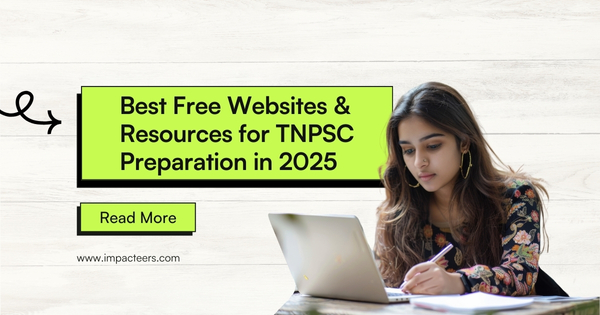It is understandable that it is understandable to be nervous to speak English. especially if it is not your native language. But what if I share a secret with you? To impress your interviewer, you do not need to be 100% fluent. The majority of recruiters are less concerned with the entire grammar and more concerned with how confident, clear, and forthcoming you are.

This book provides you with 7 practical English-speaking ways in the interview, although you are a language learner. As a fresher, student, or job aspirant, these tips will improve your interview performance from today.
English interviews are daunting, particularly when you have no idea how to speak. It reduces hesitation and makes flow. Think loudly in English instead of translating from your native language, because it speaks to you more naturally.
Do not hesitate to use words associated with your work line and advanced vocabulary. Simplicity and communication are more important than the use of large words. While in an interview, do not forget to slow down and breathe deeply; it relaxes your nervous system and gives you time to think before answering.
Visit Us >>> https://www.impacteers.com/home
Why English Confidence Matters in Interviews
In today’s global job market, many companies use English as their primary communication language. Even local businesses.
Why can you get a lead in English here?
- English often determines your first impression.
- This helps you communicate your skills clearly.
- Many HR judges confidence through communication skills.
- This can help you stand out, even if your technical skills are average.
Pro Tip:
Remember, interviewers are not checking your English test score. They are evaluating how well you express yourself in real-world situations.
1. Practice and prepare general interview questions
Preparation will be the answer to avoid nervousness. Practice general interview questions, and you will feel more comfortable with terminology and sentence construction.
To practice general interview questions:
- “Tell me about yourself.”
- “What are your strengths and weaknesses?”
- “Why should we hire you?”
- “Where do you see yourself in 5 years?”
Practice these answers loudly in English. You can also record yourself or practice with a friend.
2. Not right: I’m for clarity
You do not need to be a local speaker to make it in the interview. What do you really want?
- Clear pronunciation
- simple words
- Logical structure
Do not use big words just to sound intelligent. Rather, be clear and confident.
3. Answer Sensibly Using the STAR Method
During behavioral interviews, apply the STAR method:
- Situation: What was the situation?
- Task: What was your task?
- Action: What action did you take?
- Result: What was the result?
Example:
“In my university project(s), I was team leader (T). I assigned work and delivered on time (A), and we finished two days earlier than planned (R).”
This structure keeps you on point and professional-sounding even if your English is far from perfect.
4. Increase Your Interview Vocabulary
There are certain words that are frequently used and are interview-friendly. Knowing and incorporating these can give you a boost of confidence.
Example Words:
- Team player
- Responsible
- Deadline-driven
- Quick learner
- Leadership
- Initiative
- Conflict resolution
Tip:
Make a notebook of these words and write down 1–2 sentences for each. That way, you’ll have a “cheat sheet” handy.
5. Practice English daily
The practice begins with a daily routine. The more you practice English on a day-to-day basis, the more natural it seems in the natural situation.
Easy ways to practice:
- Chat with yourself in the mirror.
- English-speaking club or online community.
- Watch the English video or interview in the podcast
- Talk to voice assistants like Siri or Alexa in English.
Tip: Flow is a function of time, but confidence is a function of practice
6. Body language is a secret weapon
Your body language can still demonstrate confidence when your English is not ideal. Most hours seek energy, eye contact, and enthusiasm.
What to note:
- Smile on greeting gently.
- Maintain eye contact.
- Sit forward and straight.
- Use comfortable hand gestures.
It will look more natural and interesting when you answer.
7. Learn from every interview (even if you fail)
If rejected, do not be disappointed. Learn from each interview. Think about
- What was this about the questions that made you uncomfortable?
- Where did you fall back or run out of steam?
- Was the response (if any) given to you?
Over time, this reflection will make you more confident and fluent.
For more confidence tips, check out How to Crack Aptitude Tests and Group Discussions.
Expert Tips to Calm Your Nerves
Use these final-minute suggestions before any interview:
- Breathe deeply to relax nervous tension.
- Read your answers 10 minutes before.
- Think positively and affirm, “I can do this.”
- Smile before entering the room or joining the call.
Even fluent speakers feel nervous: confidence is about managing that fear.
Tips: Self-recording during practice will also find areas of mistakes and correction in pronunciation, which boosts confidence. Interview friends, masters, or a mirror facing a mirror. It gets you ready for real HR interaction and generates better hiring opportunities.
Conclusions:
Your confidence is more important than your flow
It is like climbing a mountain with someone in the middle of a hustle, but you should not be fluent to make it to the top. All you have to do is prepare, practice, practice, and keep your head. Every time you arrive and talk confidently, you are improving.
Do not wait until you are fluent in English. Practice speaking confidently today.
Check out our career development courses to level up your skills and land your dream job!
About Us >>> https://blog.impacteers.com/
Frequently Asked Questions (FAQ)
1. How can I succeed in interviewing in English when I am not fluent?
Set rehearsal Set expressions, relax, and focus on listening instead of being correct.
2. What if I do not get an English question in the interview?
Ask the interviewer to repeat or translate. It is not worth guessing it.
3. Can I switch between English and my mother tongue during the interview?
Try to respond completely in English, but if necessary, please do not hesitate to switch again to English and request to re-answer.
4. How do I prepare some simple interview questions in English?
Start with “Tell me about yourself,” “Why should we hire you? and “What are your strengths?”
5. How do I feel more confident during an interview in English?
Regular practice, conducting mock interviews, and working very effectively to study major vocabulary.


Post Comment